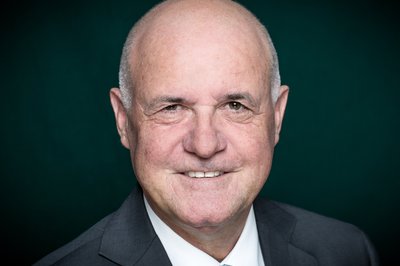Latest Developments in Fintech Regulation – FINMA and the Swiss Federal Council to reduce Barriers to Market Entry
- Barriers to market entry to be reduced for Fintech firms
- Digital onboarding
- Innovation area ("Sandbox")
- Fintech licence
1. Identified barriers to market entry
Fintech regulation is currently being developed worldwide. As traditional regulatory models are not suitable for Fintech, the current regulations need to be revised to provide a framework suitable for the new business models. In Switzerland, FINMA and the Swiss Federal Council have identified this need and have launched several reform initiatives in the past few months.
2. FINMA ready for Fintech
FINMA has driven the initial reform initiatives, such as creating an informative online presence ("Fintech Desk”), dealing with questions relating to Fintech, and serving as a point of contact for Fintech players.
FINMA pursues an innovative-friendly and technology-neutral concept with regard to Fintech. In line with that concept, FINMA has issued a new Circular 2016/7 on Video and Online Identification. The circular, in force since 18 March 2016, allows financial intermediaries, under certain conditions, to onboard clients by means of audiovisual communications in real time ("Video Identification"). The Video Identification is equally valid to in-person identification with respect to the duty to identify the contracting party. Additionally, client internet onboarding has been made easier by permitting various forms of online identification, such as, the qualified electronic signature.
Furthermore, FINMA has adapted its Circular 2009/1 "Guidelines on asset management" to align it with its technology-neutral concept. As of 1 August 2016, asset management agreements no longer need to be concluded in writing. The revised circular now allows for their digital conclusion. With this step, FINMA finished its revision work on implementing the technology neutrality of its regulations.
While technology should be neutral as to technology, FINMA has also taken the view that a legitimate need exists to create a less onerous licence for start-ups in the financial industry. The stringent requirements for granting licences, set out in the Swiss Banking Act (“BA"), are not tailored for Fintech firms that perform only certain elements of a banking business. Thus, these requirements present a significant barrier to market entry.
Consequently, FINMA has suggested implementing a new licence category for Fintech firms.
3. Swiss Federal Council to reduce barriers to market entry
In April 2016, the Swiss Federal Council picked up FINMA’s proposal and instructed the Federal Department of Finance ("FDF") to examine the "need for regulatory action" regarding Fintech and to submit proposals for improvements by the autumn of 2016.
On 2 November 2016, the Federal Council published its policy statement outlining a "three-step plan" to adjust the current financial regulatory framework in Switzerland to the business reality of the Fintech industry.
4. Fintech model Switzerland– a solution based on three pillars
The regulatory amendments proposed by the Federal Council will be based on three complementary pillars. Anti-Money laundering regulations will continue to apply to Fintech firms if they act as financial intermediaries.
a. First Pillar: Extension of the holding period for crowdfunding platforms and other ventures
According to Art. 5 para 3 lit. c of the Swiss Banking Ordinance ("BO"), accounts of securities dealers, precious metal traders, asset managers or similar firms are not qualified as deposits from the public if they are interest-free and exclusively used for the settlement of client transactions. Nonetheless, according to FINMA practice, such funds can only be held for a period of up to seven days. This timeframe has turned out to be too short, especially in the crowdfunding sector.
Therefore, by its policy statement, the Federal Council proposed prolonging the holding period in settlement accounts to 60 days. This change will enable crowdfunding firms (as well as other firms with settlement accounts) to collect funds and to hold such funds for a period of up to 60 days without the necessity of applying for a banking license.
b. Second Pillar: Innovation area ("Sandbox")
Under the current regulation, funds taken from more than 20 depositors qualify as deposits and are subject to a banking licence unless an exemption applies (Art. 5 and 6 BO). Given that taking in deposits is part of their financial activities, this restriction limits Fintech firms’ development potential.
In response thereto, financial market regulation shall allow for the performance of authorisation-exempt bank-like activities in an innovation area called "Sandbox". Accordingly, a provider operating in this exempted innovation area would be allowed to accept deposits without restriction up to a total value of CHF 1 million.
c. Third Pillar: "Fintech licence"
Having identified the legitimate need to create a less onerous licence for Fintech firms, the Federal Council proposed creating a new licence category for institutions outside the lending business.
The so-called "Fintech licence" will provide for less stringent regulatory requirements than the regular banking licence. This licence would entitle Fintech firms to accept public funds up to CHF 100 million even if such funds are qualified as deposits in the sense of the BA. Further exceptions for a higher threshold than CHF 100 million are foreseen if special requirements can guarantee protection to the individual client.
Firms holding a Fintech licence would be requested to hold a minimum capital of 5% of the accepted funds but not less than CHF 300,000.
The Fintech licence, as proposed by the Federal Council, would be unique and unequalled by international standards.
5. Next steps
The Federal Council instructed the FDF to prepare a consultation draft to implement the proposed legislative amendments. This draft will be available by the beginning of 2017. Stakeholders are invited to align with the FDF to clarify whether additional regulatory adjustments are needed to remove further barriers to Fintech firms’ market entry.



